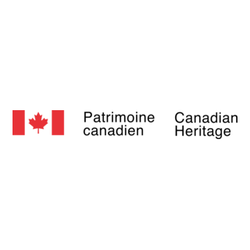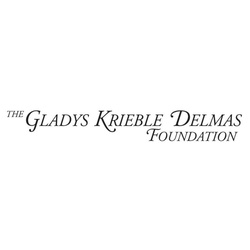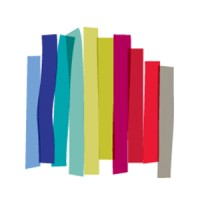
Open
Documentary Heritage Communities Program (DHCP)
Last Update: December 4, 2025
Canada
Money for documentary heritage organizations
Grant and Funding
At a glance
Funding available
Financing goals
Increasing community impact
Integrate new technologies
Develop employee skills
See more
Eligible Funding
- Maximum amount : 150,000 $
- Minimum amount : 24,999 $
- Up to 100% of project cost
Timeline
- Open Date : October 9, 2023
- Closing date : July 9, 2024
Eligible candidates
Eligible Industries
- Information and cultural industries
Location
- Canada
Legal structures
- Non-profit
- Public or Parapublic institution
Annual revenue
- All revenue ranges
Organisation size
- All organization sizes
Audience
- Indigenous Peoples
- Language Minorities
- Rural or Northern Residents
Non-profit candidates
Sector of operation
- Culture and Arts
- Research
- Diversity and Inclusion
Target groups
- General public
- Indigenous peoples
- Rural / Remote communities
- Artists / creatives
- Nonprofits / charities
- Academia / students
- Minority groups
Revenue structures
- Mixed revenue (<50% earned)
Scope
- Local
- Regional
Overview
Receive funding to cover up to 100% of the project costs to document Canada's continuing memory and history to make it accessible to current and future generations.
Activities funded
- Migrating a collection or holdings to an online database.
- Adding archival standard descriptions, translations, and transcriptions to finding aids.
- Recording oral history interviews, such as with local veterans or Indigenous Elders.
- Conserving and/or restoring portraits or photographs of historical and/or local significance.
- Creating an exhibition based on a specific collection.
- Developing and sharing best practices and policies for processing holdings.
- Digitizing a mixed media collection or local oral history interviews.
- Digitizing newspapers for which the applicant owns the copyright.
- Organizing a documentary heritage conference.
Examples of admissible projects:
$ 105,000
Restoring and digitizing Métis cultural artifacts and creating a virtual exhibition
$ 85,000
Digitizing archival photographs from the early 1900s and making them accessible online
$ 120,000
Creating a documentary on the history of French-language newspapers in Canada
$ 80,000
Developing an interactive digital timeline documenting the history of immigration
$ 110,000
Documenting indigenous oral histories and creating an online archive with educational resources
Eligibility
- Applicant must be a local non-profit documentary heritage organization.
- Eligible organizations include archives, genealogical organizations, historical societies, Indigenous organizations or government institutions, private libraries, and organizations with an archival component.
- Applicants must be privately funded (50% or more), except for Indigenous organizations or government institutions.
- Incorporated and non-incorporated non-profit organizations can apply.
- Applicant organizations must own the documentary heritage collections for which they seek funding.
- Applications must include proof of non-profit status or registration as a charitable organization, financial statements, and other required documents.
- Only one application per organization is allowed per funding cycle.
- Project proposals must be submitted through the LAC funding portal.
Who is eligible?
- Archives
- Genealogical organizations or societies
- Historical societies
- Indigenous organizations or government institutions (First Nations, Inuit, and/or Métis Nation band councils, government organizations or non-profit organizations such as cultural centres, community organizations, historical societies)
- Private libraries
- Organizations with an archival component (organizations with a documentary heritage collection that portrays the past of the organization, its predecessors, or the community in which it is located)
- Professional library or archival associations (incorporated bodies that represent the professional development of archivists, librarians, historians, authors, and information managers)
Who is not eligible
- Businesses (for profit)
- Government institutions (except Indigenous government institutions)
- Publicly funded organizations (such as municipal libraries)
- Educational institutions (public and private institutions, as well as colleges, universities or trade schools)
- Non-profit organizations administered by a government or an education institution
- Non-profit organizations receiving more than 50% of their annual operating funding from any level of government
Eligible expenses
- Translating project-related communications material.
- Translating descriptive information, notably for official-language minority communities.
- Administration, shipping, promotion, and communication expenses related to the project.
- Salaries and wages for project staff and consultants, along with associated travel expenses.
- Honoraria for Indigenous Elders.
- Purchasing and/or renting equipment and software required for the project.
- Purchasing materials required for the project, such as archival boxes.
- Project launch event costs, including hospitality and visibility for Government of Canada contributions.
- Gifts to Indigenous Elders, valued at less than $100 each.
- Insurance costs for a travelling exhibition.
- Professional costs for conservation/preservation treatments.
- Project results evaluation costs, including staff or consultants for progress and results reporting.
- Training, competency, and capacity-development activities.
Eligible geographic areas
- Organizations located in remote areas qualified under the Canada Revenue Agency's list of prescribed zones.
Selection criteria
- Relevance and community engagement: The applicant demonstrates that the project aligns with program objectives, is relevant, responds to a need, has a significant impact, and has support and interest from other funders or partners.
- Project planning and management: The organization shows a clear project outline, realistic timelines, adequate human resources, and sound project management methods.
- Budget analysis: The applicant provides a forecast and timeline of project costs and revenues, receives financial support from other sources where applicable, and requests an appropriate amount.
- Evaluation and expected outcomes: The evaluation strategy is appropriate, with clearly identified, realistic, and sustainable short- and long-term outcomes.
- Capacity to deliver: The applicant organization has a fiscally responsible operating budget, capacity for project management, and readiness to implement the project.
- Risks associated with the proposed project: The project proposal demonstrates knowledge of potential risks and mitigation measures.
How to apply
1
Preliminary RegistrationCreate a user account on the LAC funding portal.
Provide basic information about your organization for registration.
2
Prepare ApplicationGather all necessary documents, such as proof of non-profit status, financial statements, and project-specific supporting documents.
- Develop a detailed project proposal highlighting objectives, expected outcomes, and budget.
- Use the mandatory DHCP templates for the Project Budget Form and Project Timeline Form.
- Secure letters of reference, proof of incorporation, and any necessary copyright confirmations, if applicable.
3
Complete Application FormLog into the LAC funding portal and complete the organization profile.
Fill out the application form in either English or French.
4
Submit ApplicationUpload all required documents and complete the application process in the LAC funding portal.
Submit your application before the specified deadline.
5
Confirmation of SubmissionReceive a confirmation email acknowledging receipt of your application.
Ensure the confirmation email is retained as proof of submission.
Additional information
- Organizations that have received funding in the past may be encouraged to form partnerships with other eligible entities for future applications.
- The program allows organizations to redistribute funding to eligible third parties, provided transparency regarding the third parties' roles is maintained.
- Recipients are required to publicly acknowledge the financial assistance received from Library and Archives Canada in their project communications.
- Official language requirements are emphasized, encouraging the production of project materials in both English and French to support minority language communities.
- An external advisory committee is involved in evaluating and recommending applications, which contributes to the accountability and transparency of the application process.
- Recipient organizations must submit progress reports and a final assessment report detailing outcomes and financial expenditures of the funded project.
- Funding is provided in installments, with final amounts contingent on the approval of interim and final reports.
- The program does not entertain appeals or reviews of funding decisions, emphasizing the finality of the Librarian and Archivist of Canada's determinations.
- For large contributions, 15% of the funding is withheld until the interim report is reviewed and approved.
- The deadline for general questions related to the call for proposals is December 20, 2024, and for technical questions is January 9, 2025.
- The program includes a competitive assessment process emphasizing regional representation and critical response to program priorities, reflecting the broader governmental goals.
- Applicants are encouraged to contact past recipients for advice and form networks, fostering collaboration in the documentary heritage sector.
Contacts
contributions@bac-lac.gc.ca
819-997-0893
Canada
Apply to this program
Frequently Asked Questions about the Documentary Heritage Communities Program (DHCP) Program
Here are answers to the most common questions about the Documentary Heritage Communities Program (DHCP). This section explains what the program is, how much funding is available, eligibility requirements, application deadlines, and other important details to help you determine if this grant is right for your business.
What is the Documentary Heritage Communities Program (DHCP)?
How much funding can be received?
What is the deadline to apply?
Who is eligible for the Documentary Heritage Communities Program (DHCP) program?
What expenses are eligible under Documentary Heritage Communities Program (DHCP)?
Who can I contact for more information about the Documentary Heritage Communities Program (DHCP)?
Where is the Documentary Heritage Communities Program (DHCP) available?
Apply to this program
More programs like this

Wage Subsidies And InternsOpen
TECHNATION — Career Ready Program
TECHNATIONWage subsidy for developing tech talent

Grant and FundingClosed
Digital Citizen Research Program - Digital Citizen Contribution Program
Canadian HeritageSupports research and activities countering online disinformation in Canada

Grant and FundingClosed
Digital Museums Canada — Digital Projects
Digital Museums Canada (DMC)Funding for Canadian museums to develop accessible digital storytelling projects

Grant and FundingClosed
Canada History Fund
Canadian HeritageSupports national projects advancing knowledge of Canadian history and civics

Expert AdviceOpen
Destination Canada Resources
Destination CanadaInternational tourism marketing tools

Grant and FundingOpen
Programme de bibliothèque de recherche
The Gladys Krieble Delmas FoundationSupport for research library access and scholarship projects

Grant and FundingClosed
Museums Assistance Program — Indigenous Heritage
Canadian HeritagePreserve and support Indigenous heritage

Grant and FundingClosed
Research & Sector-Building Grants
Inspirit FoundationSupports equity-focused research and sector-building activities

Grant and FundingOpen
Community Innovation Grant
Gwaii Trust SocietySupport for small innovative community projects

Grant and FundingClosed
Industrial Research Assistance Program (IRAP) – AI Assist
National Research Council Canada (NRC)Supports Canadian SMEs in adopting and integrating advanced AI solutions
Sign up to our platform to access the Documentary Heritage Communities Program (DHCP) information sheet for free
Get access to 4,000+ programs, practical guides, personalized alerts, and an AI assistant to support your grant applications.